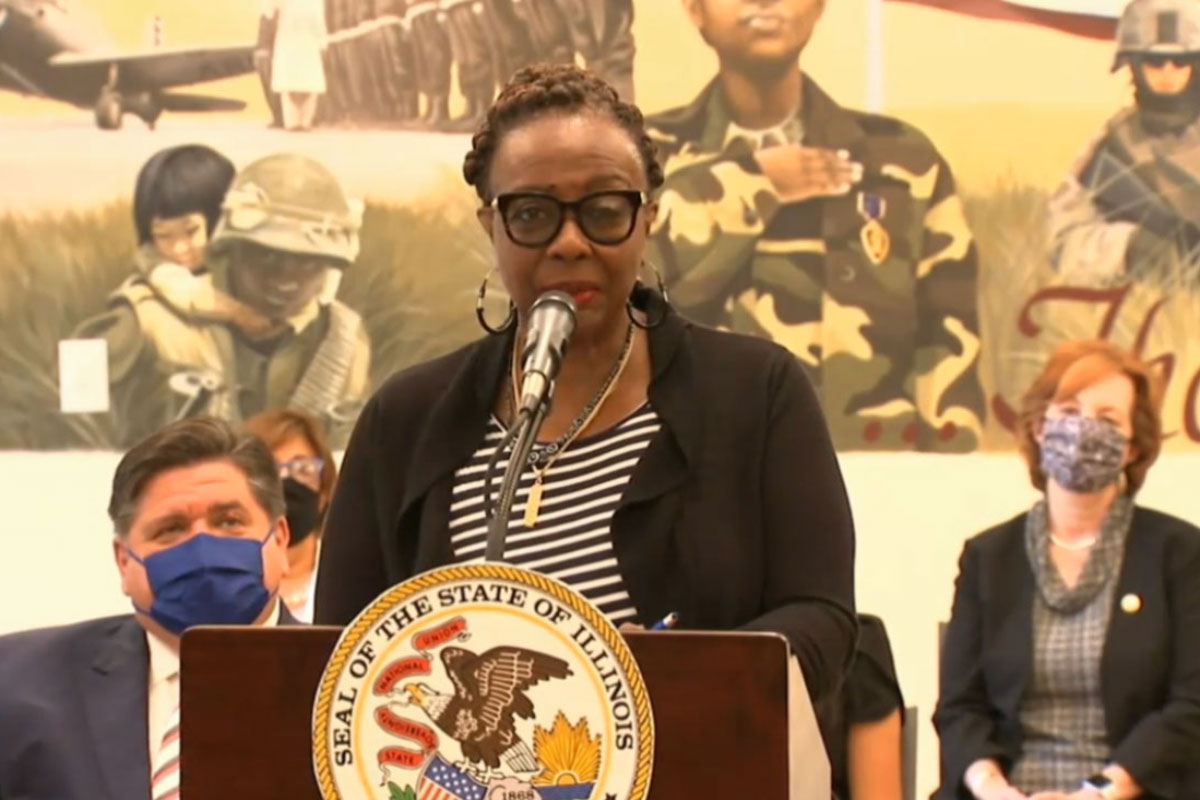 SPRINGFIELD – As the COVID-19 pandemic further accentuated the need for affordable housing in Illinois, State Senators Mattie Hunter, Ann Gillespie and Sara Feigenholtz knew they had to do something to help residents who too long have suffered from burdensome housing mandates.
SPRINGFIELD – As the COVID-19 pandemic further accentuated the need for affordable housing in Illinois, State Senators Mattie Hunter, Ann Gillespie and Sara Feigenholtz knew they had to do something to help residents who too long have suffered from burdensome housing mandates.
The trio of Democratic lawmakers worked together to champion a newly signed law to create incentives in the housing market for affordable housing units, enforce the mandatory affordable housing plan for cities with at least 1,000 residents and change how the Cook County assessor’s office calculates the tax liability for affordable housing complexes.
“I’ve advocated for equitable housing for a long time, and this year, affordable housing is more necessary than ever before,” said Hunter (D-Chicago). “People are still recovering from the financial struggles brought on by the pandemic, not to mention the eviction moratorium coming to a halt. I hope that affordable and equitable options prevail long after this pandemic is gone.”
The legislation creates two property tax incentives: one for rehabilitation and one for new construction of affordable housing units. These incentives address the lack of affordable options in high-opportunity areas, as well as in areas of need.
“Renters across the state are counting on us to keep their communities affordable,” said Gillespie (D-Arlington Heights). “This plan creates a long-term strategy for affordable housing and provides stability for working people.”
House Bill 2621 also creates the COVID-19 Affordable Housing Grant Program to build and preserve up to 3,500 affordable rental homes. The Illinois Housing Development Authority will administer grants to properties awarded a federal Low-Income Housing Tax Credit, with priority given to projects that contract with organized labor, apprenticeship programs, and women-, veteran- and minority-owned contractors. IHDA would enforce the program.
The measure also strengthens the current law that requires cities of at least 1,000 residents to submit an affordable housing plan to IHDA. Both IHDA and the attorney general would be given greater authority to enforce these plans.
The legislation also requires the Cook County assessor to consider the actual or projected income earned from an affordable housing development, rather than assessing the property as receiving market-rate rental income.
“The need for affordable housing across Illinois has continued to escalate as the pandemic continues,” said Feigenholtz (D-Chicago). “The housing crisis is one of the most crucial issues we are facing in Illinois, and providing landlords with incentives to offer tenants more affordable rent is a necessary step forward.”
House Bill 2621 was signed into law Thursday and took immediate effect.













 © 2026 Illinois Senate Democratic Caucus
© 2026 Illinois Senate Democratic Caucus